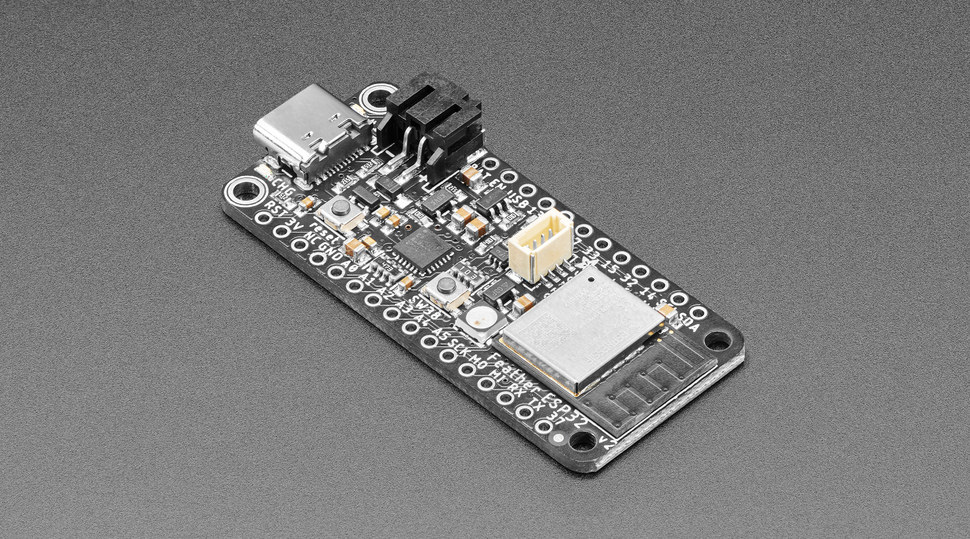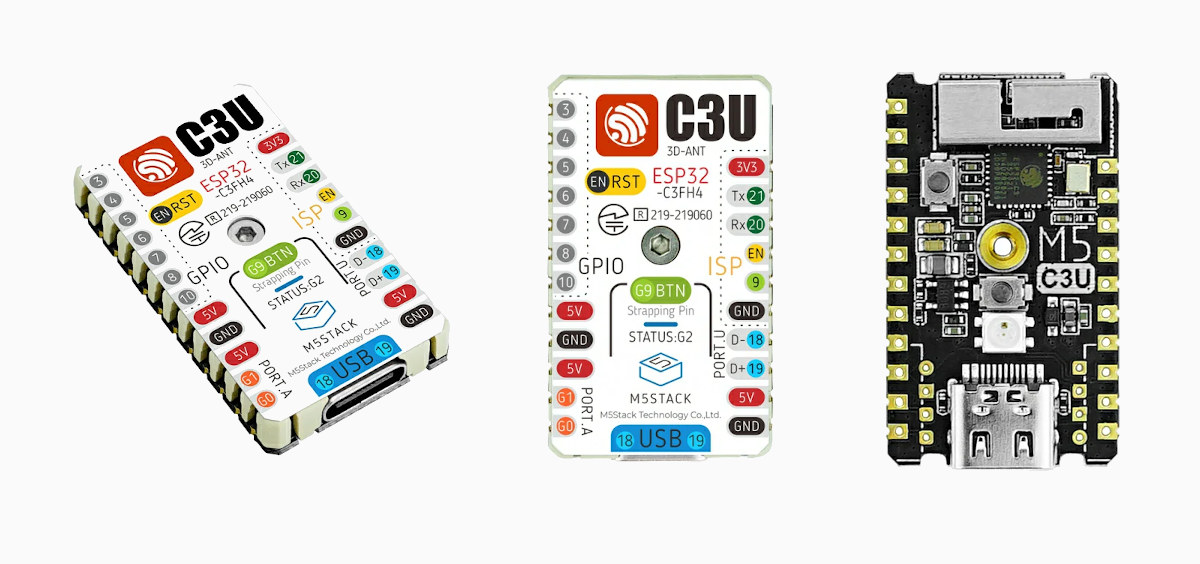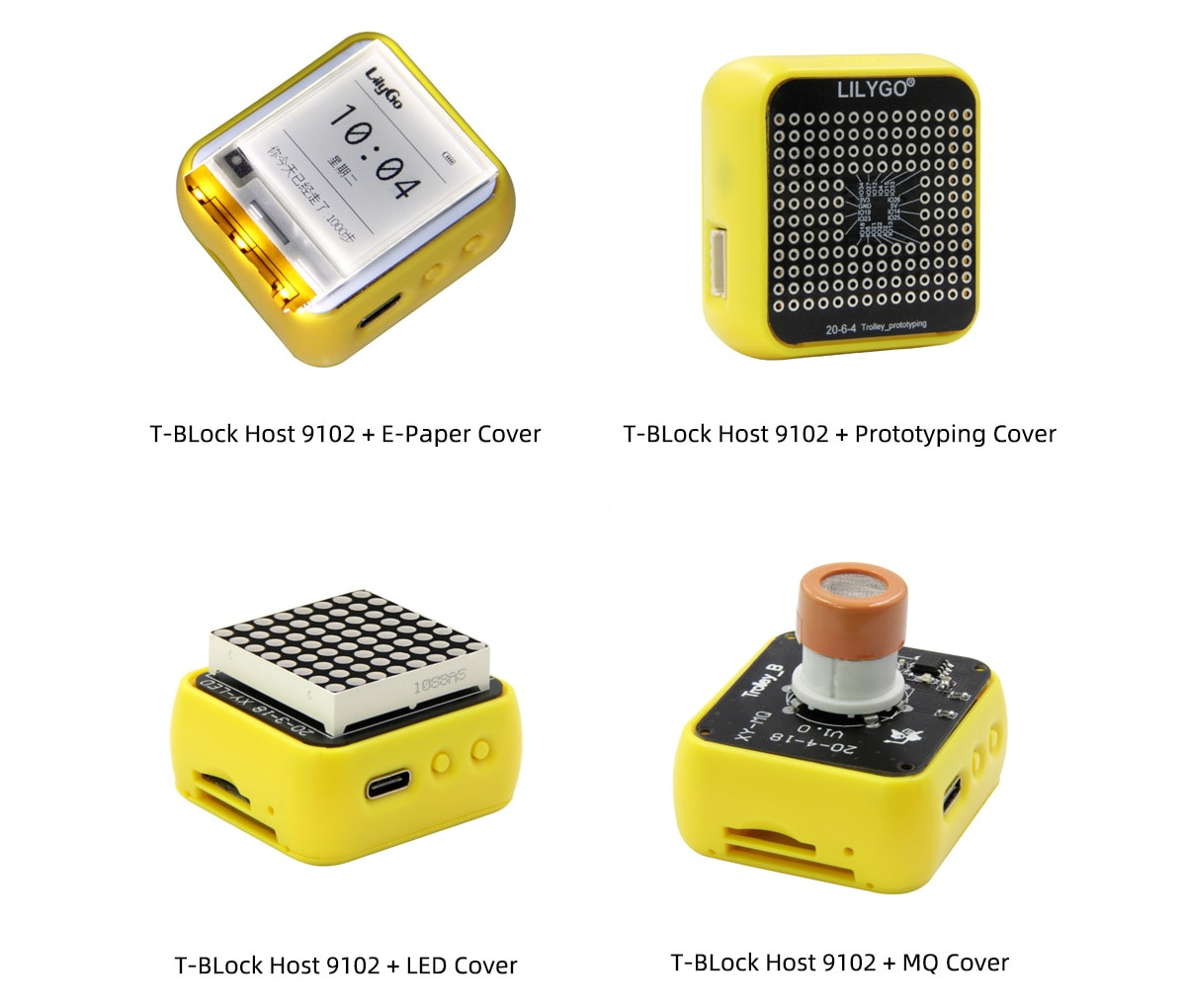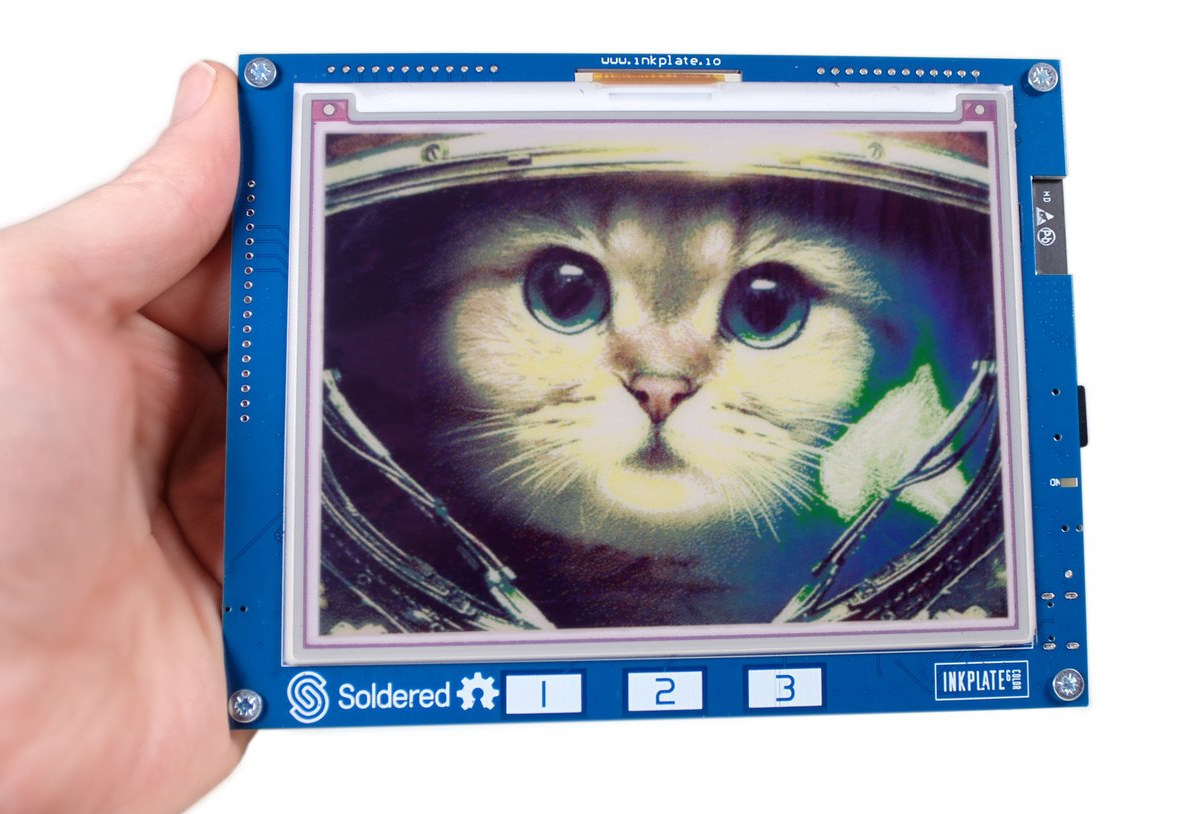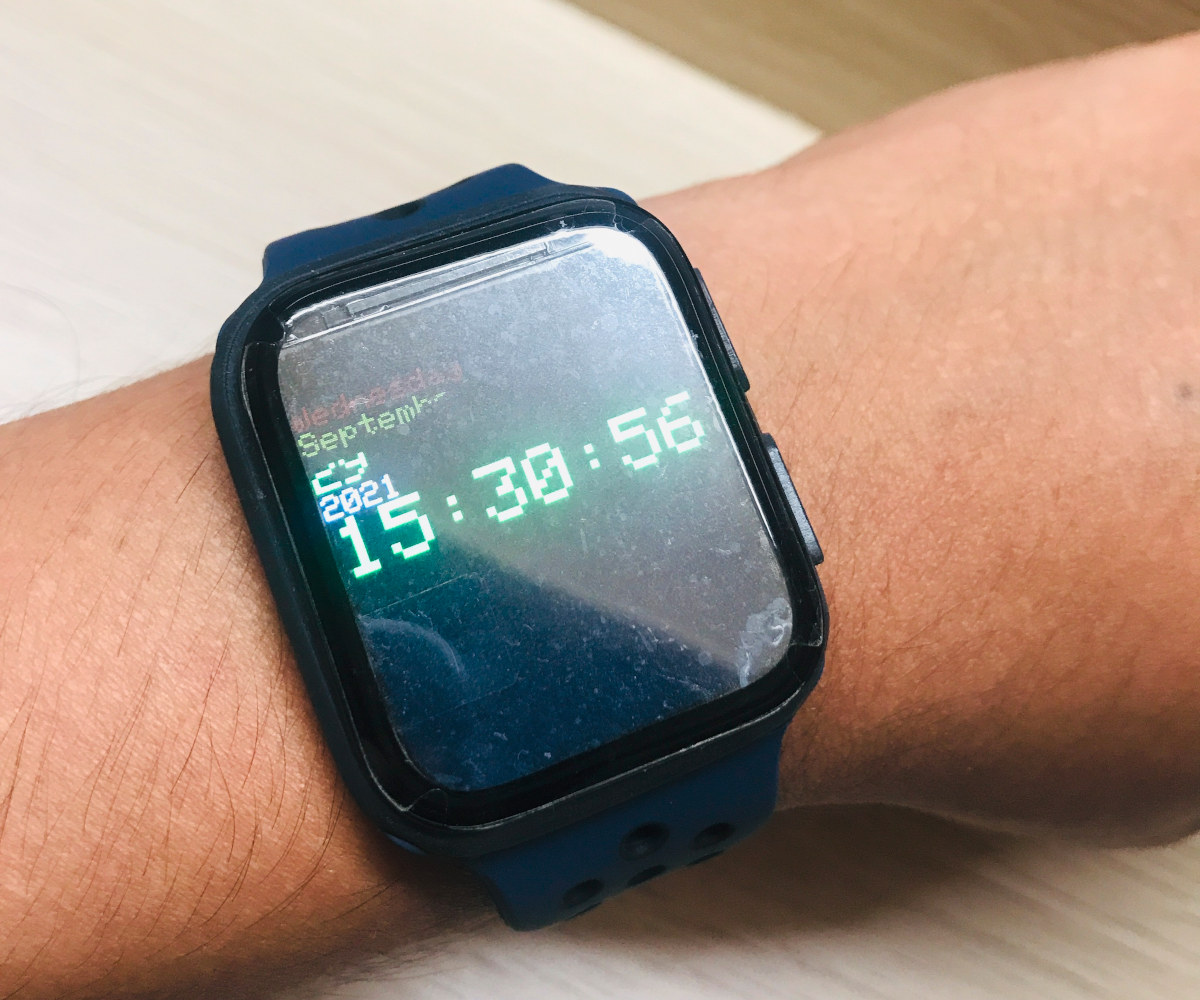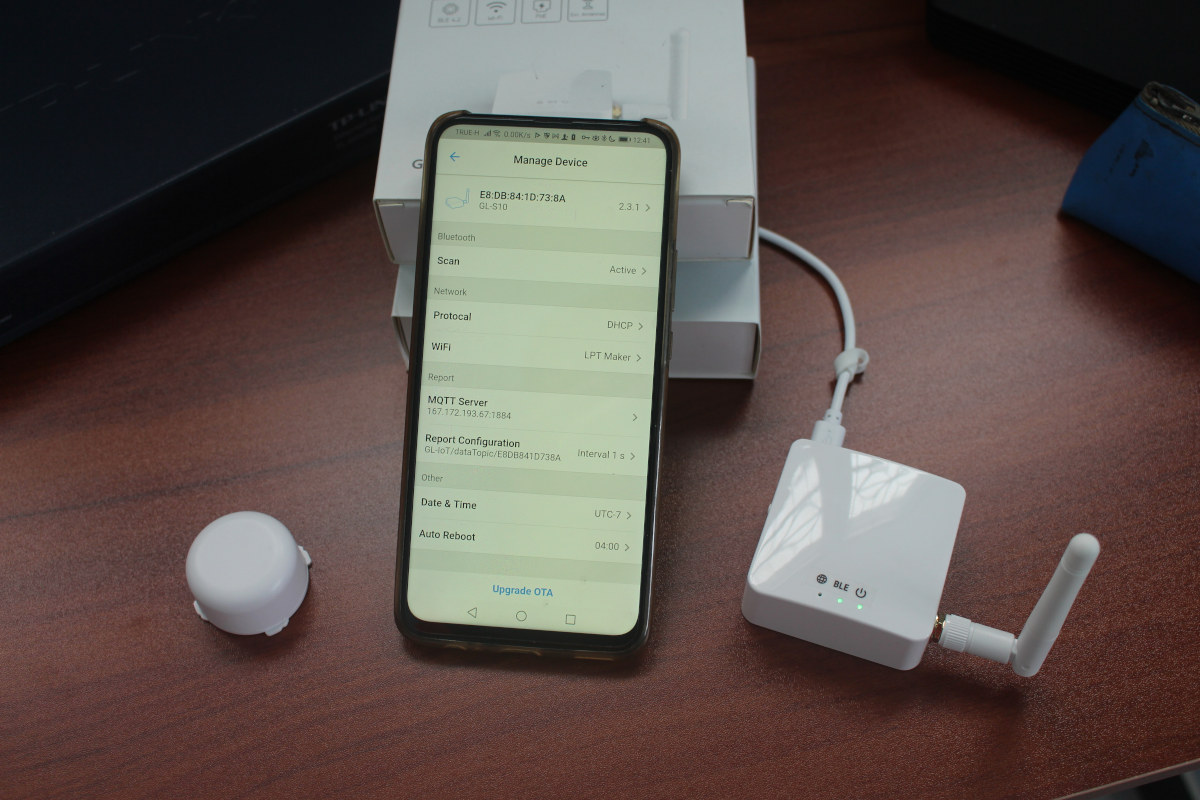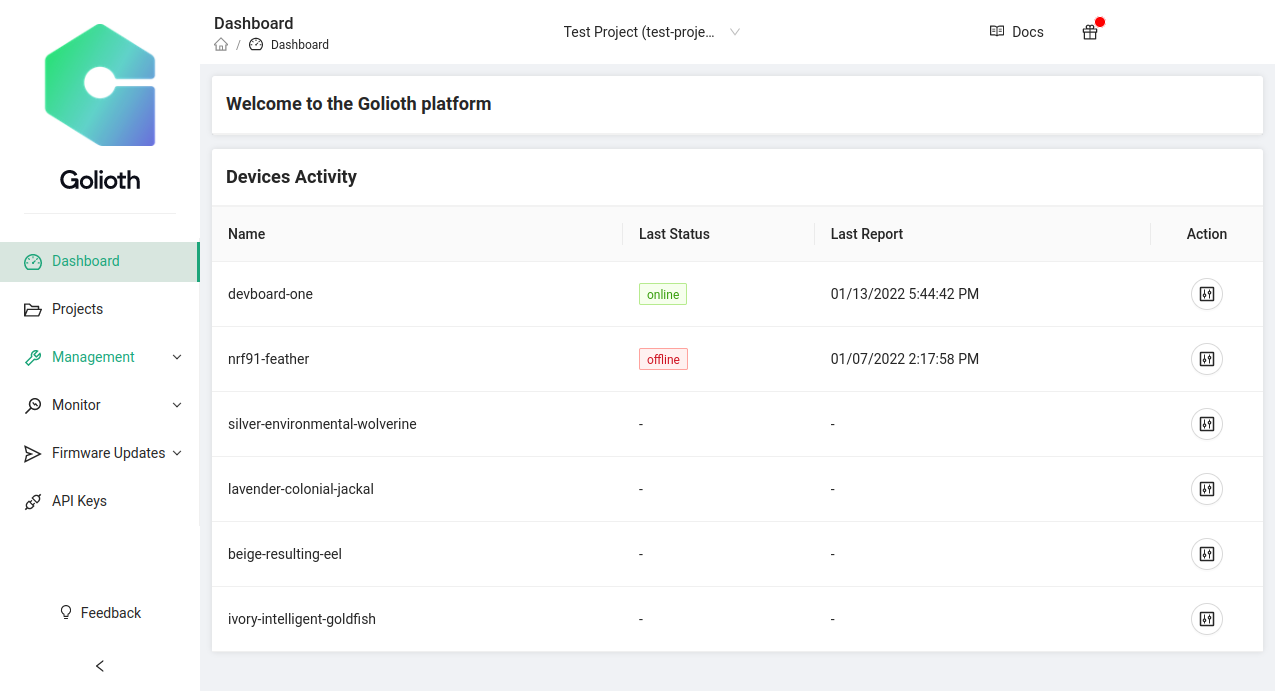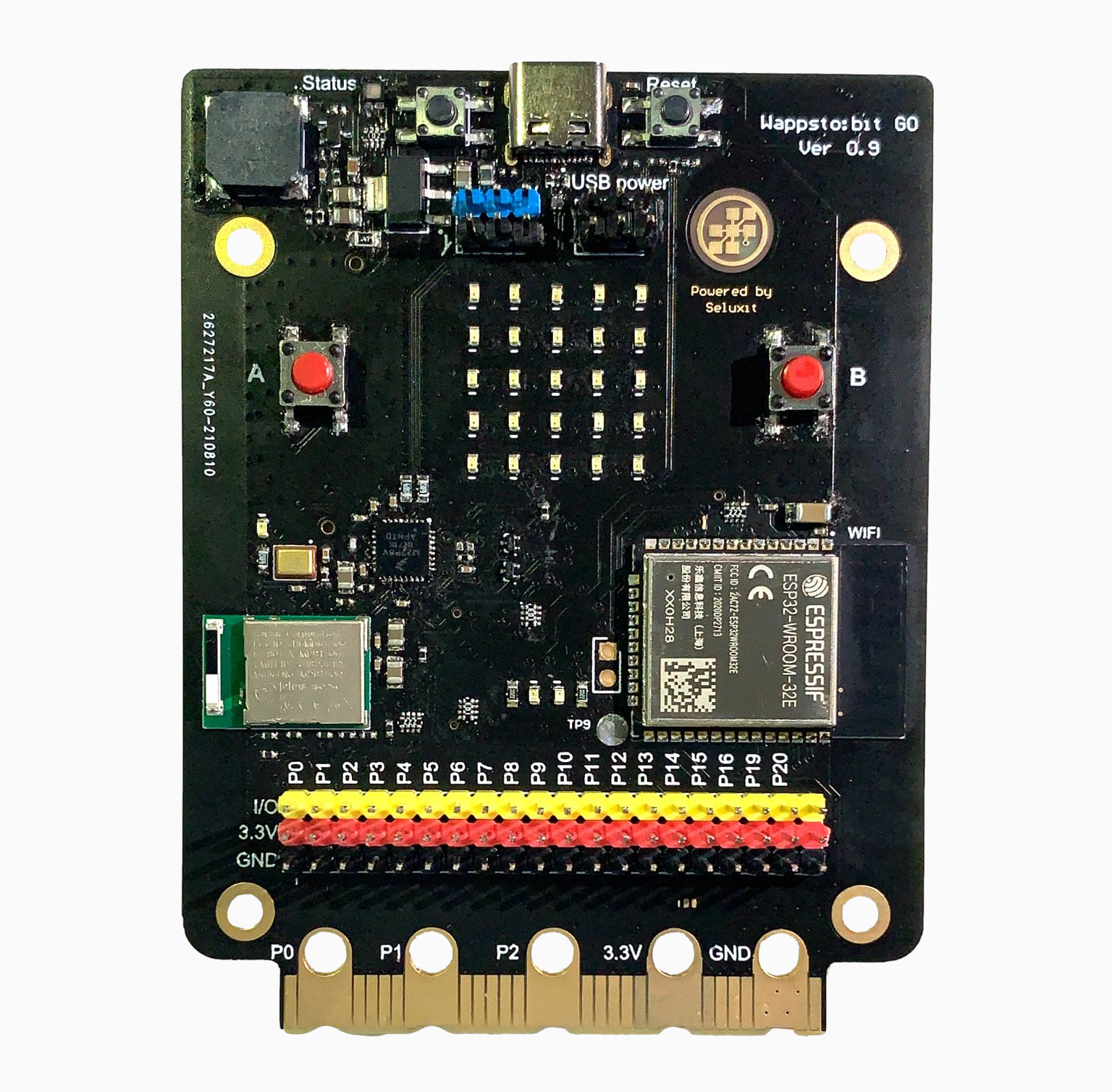Adafruit ESP32 Feather V2 (aka Huzzah32 Feather V2) is an upgrade to the company’s HUZZAH32 ESP32 Feather, still based on ESP32 WiFi & Bluetooth processor, and designed with the initial goal of replacing the obsolete CP2104 with the CP2012N USB to TLL chip. But Adafruit ended up doing a complete redesign with extra storage (8MB flash in total), 2MB PSRAM, a USB-C port replacing the Micro USB port, an extra tactile switch, an RGB LED, lower power consumption, and more. Adafruit ESP32 Feather V2 specifications: Wireless module – Espressif Systems ESP32-PICO-Mini-02 (PDF datasheet) with an ESP32 dual-core Xtensa processor @ up to 240MHz with 2.4 GHz WiFi and Bluetooth Classic/LE, 8MB flash, 2MB PSRAM, PCB antenna, FCC/CE certification. USB – USB Type-C port for power and programming via CP2102N chipset I/Os 16-pin and 12-pin GPIO headers with GPIOs, analog inputs, I2C, UART, SPI, DAC, etc… STEMMA QT connector for I2C devices, […]
M5Stamp C3U IoT module relies on ESP32-C3’s own USB interface for firmware programming
M5Stamp C3U is an update of the M5Stamp C3 RISC-V IoT module with heat-resistant cover, support for WiFi 4 and Bluetooth 5.0, that does without CH9102 USB to TTL chip, relying instead on the internal USB interface of ESP32-C3 processor to handle serial programming of the firmware, and gaining on extra GPIO pin in the process. While several ESP32 processors come with a built-in USB interface, many boards still use an external USB to TTL chip such as CH340 or CP2102 to handle the serial interface used for debugging and flashing the firmware likely because of limitations when using ESP32-C3’s USB serial/JTAG controller console, but M5Stack probably considered those to be workable, and the small cost-saving beneficial. M5Stamp C3U specifications: WiSoC – ESP32-C3FH4 32-bit single-core RISC-V processor @ up to 160 MHz, with 384KB ROM, 400KB SRAM, 8KB RTC SRAM, 4MB embedded flash, WiFi and Bluetooth Connectivity 2.4 GHz WiFi […]
TTGO T-Block modular ESP32 devkit supports “Trolley” covers acting as display, buttons, sensor, proto area, etc…
When I first LilyGO TTGO T-Block ESP32 devkit with an enclosure and a display it reminded me of the M5Stack Core2 devkit, but it’s actually different as LilyGO designed a modular system that allows users to change the functionality of the top cover with expansion boards called “Trolleys”. That means TTGO T- Block can be fitted with a small e-Ink display, a prototyping cover, an RGB LED matrix, a small board that supports various MQ gas sensors, touch buttons, or a Trolley board equipped with headers compatible with common Arduino modules. TTGO T-Block Host 9102 preliminary specifications: WiSoC – ESP32 dual-core processor @ 240 MHz with 520KB SRAM, WiFi 4 and Bluetooth LE 4.2/5.x connectivity Memory – 8MB PSRAM Storage – 16MB SPI flash, MicroSD card slot USB – 1x USB Type-C for power and programming via CH2104 USB to TTL chip Trolley interface – 20-pin connector with 17x GPIO, […]
Inkplate 6COLOR – A 5.8-inch e-paper color wireless display (Crowdfunding)
Inkplate 6COLOR is a 5.8-inch color e-paper display equipped with ESP32 WiSoC to provide WiFi and Bluetooth LE connectivity, and programmable with the Arduino IDE or MicroPython. We’ve covered Inkplate ESP32-based e-paper displays since Inkplate 6 was launched in 2019, and since then the company introduced a larger model and an upgraded variant with a touchscreen display and higher resolution. But so far, all were grayscale models, and Inkplate 6COLOR is the first to come with color, or more exactly 7 colors. Inkplate 6COLOR specifications: Wireless module with dual-core ESP32 processor, Wi-Fi 4 & Bluetooth 4.0 (BLE) connectivity External storage – MicroSD card socket Display – 5.8-inch, 600 x 448 e-paper display with 7 colors (Black, White, Red, Yellow, Blue, Green, Orange) 128 DPI 25 seconds refresh time (manufacturer); tested by Inkplate: 10 to 11 seconds USB – 1x USB Type-C port for programming and power Expansion – Headers for […]
MutantW V1 – An open-source ESP32 smartwatch designed with Autodesk Fusion 360 and EAGLE
Rahmanshaber is known for its DIY Raspberry Pi handheld PCs such as MutantC v4, but MutantW V1 is a completely different device as an ESP32-based DIY open-source smartwatch that he designed with Autodesk Fusion 360 and EAGLE. The smartwatch is equipped with a 1.7-inch IPS LCD display (non-touch), two hardware buttons, a NeoPixel RGB LED, a vibration motor, as being powered by an ESP32 SoC offers both 2.4GHz WiFi 4 Bluetooth LE connectivity. MutantW V1 specifications: WIreless module – A.i. Thinker ESP32-S WiFi and Bluetooth module with ESP32 dual-core processor @ 240MHz with 520KB SRAM, 4MB SPI flash Display – 1.69-inch SPI IPS LCD display (ST7789 driver) with 280 x 240 resolution, scratch-resistant front glass. Note: no touchscreen Programming – Via 4-pin charging cable or OTA firmware upgrade Misc – 2x programmable buttons, NeoPixel RGB LED, vibration motor Battery – 3.7V/200mAh LiPo battery likely good for one or two days; […]
Review of GL.inet GL-S10 BLE to MQTT gateway with MQTT X open-source client
I started the review of GL.inet GL-S10 BLE to MQTT gateway in December by doing an unboxing and a teardown of the ESP32 gateway and BLE beacon provided. I’ve now had to play with the device and recommended app and software, and it took longer than expected since I encountered several issues during testing, most of which should now be resolved with new firmware, and documentation will be updated very soon. I mostly followed the steps from the detailed user manual for this review. The first time I did was to install the GL-S10 Tool App for Android, then power the gateway while pressing its button to enter pairing mode and soon enough the gateway was detected. Note you should probably not share the MAC address of your devices as there’s no security by default, and anybody would be able to access the information with the tools we’ll use below. […]
Golioth IoT development platform offers Zephyr SDK, support for nRF9160, ESP32, and over 100 other platforms
There are already plenty of IoT development platforms, but here’s another one with Golioth that relies on a Zephyr SDK, “first-tier” support for Nordic Semiconductor nRF9160 (cellular) and Espressif Systems ESP32-C3 (WiFi), as well as a QEMU-based simulator for easy testing. The use of an open-source Zephyr SDK even enables them to support over 100+ hardware components, and the company, also called Golioth, says their platform scales from one device for evaluation to one million devices during deployment, thanks notably to a free Dev Tier account to get started at no cost. Some of the other highlights of Golioth include: “Secure by Default” communication over efficient protocols like CoAP and soon MQTT Access to Device Services like Software updates that include secure boot and firmware management Real-time NoSQL database (LightDB) that can be useful for creating Digital Twins and synchronization Time-series database (LightDB Stream) for storing and querying sensor data […]
Wappsto:bit GO – An ESP32 board with plenty of sensors, Micro:bit compatibility (Crowdfunding)
Wappsto:bit GO is an ESP32 board compatible with BBC Micro:bit accessories thanks to a compatible edge connector, but adding WiFi to Bluetooth LE, and offering some extras compared to Elecrow Mbits ESP32-based BBC Micro:bit clone. The new board is notably equipped with a wider range of sensors including a light sensor, a magnetometer, and sound sensor beside the temperature sensor and accelerometer present in the original board, and it also exposes GPIO through a more traditional 2.54-pitch header to facilitate the integration of a wider variety of add-on boards. Wappsto:bit GO specifications: Wireless modules ESP32-WROOM-32E module with ESP32 dual-core microcontroller, 4MB flash, 2.4 GHz WiFi and Bluetooth LE connectivity, built-in PCB antenna Raytac MDBT50Q-512K Bluetooth 5.2 module based on nRF52833 with 512KB Flash MCU – NXP Kinetis KL2 Arm Cortex-M0+ microcontroller (MKL27Z256VFM4 ) with 256KB Flash (for USB port handling) Display – 25 LED matrix Sensors Temperature sensor, Light sensor […]


